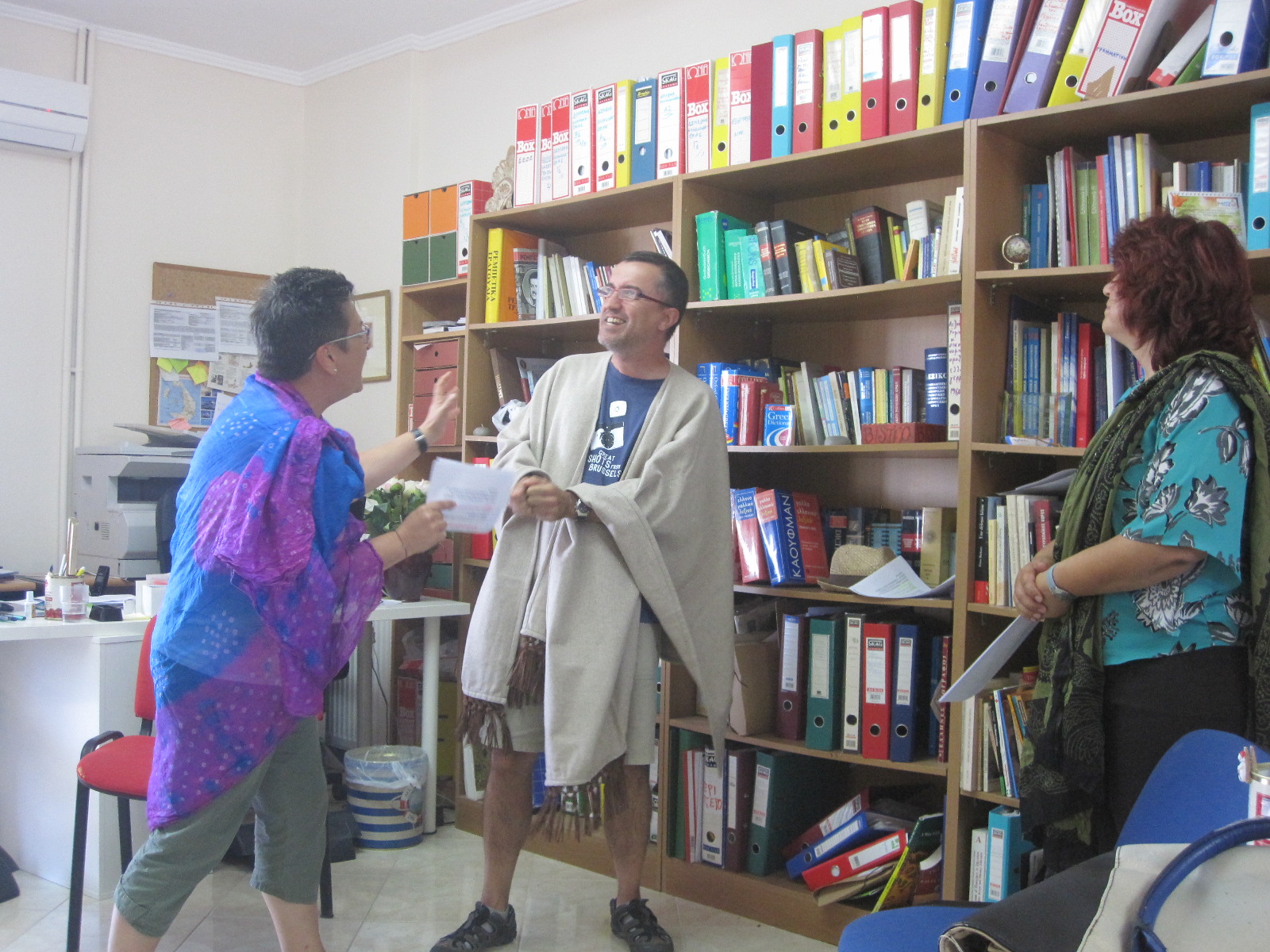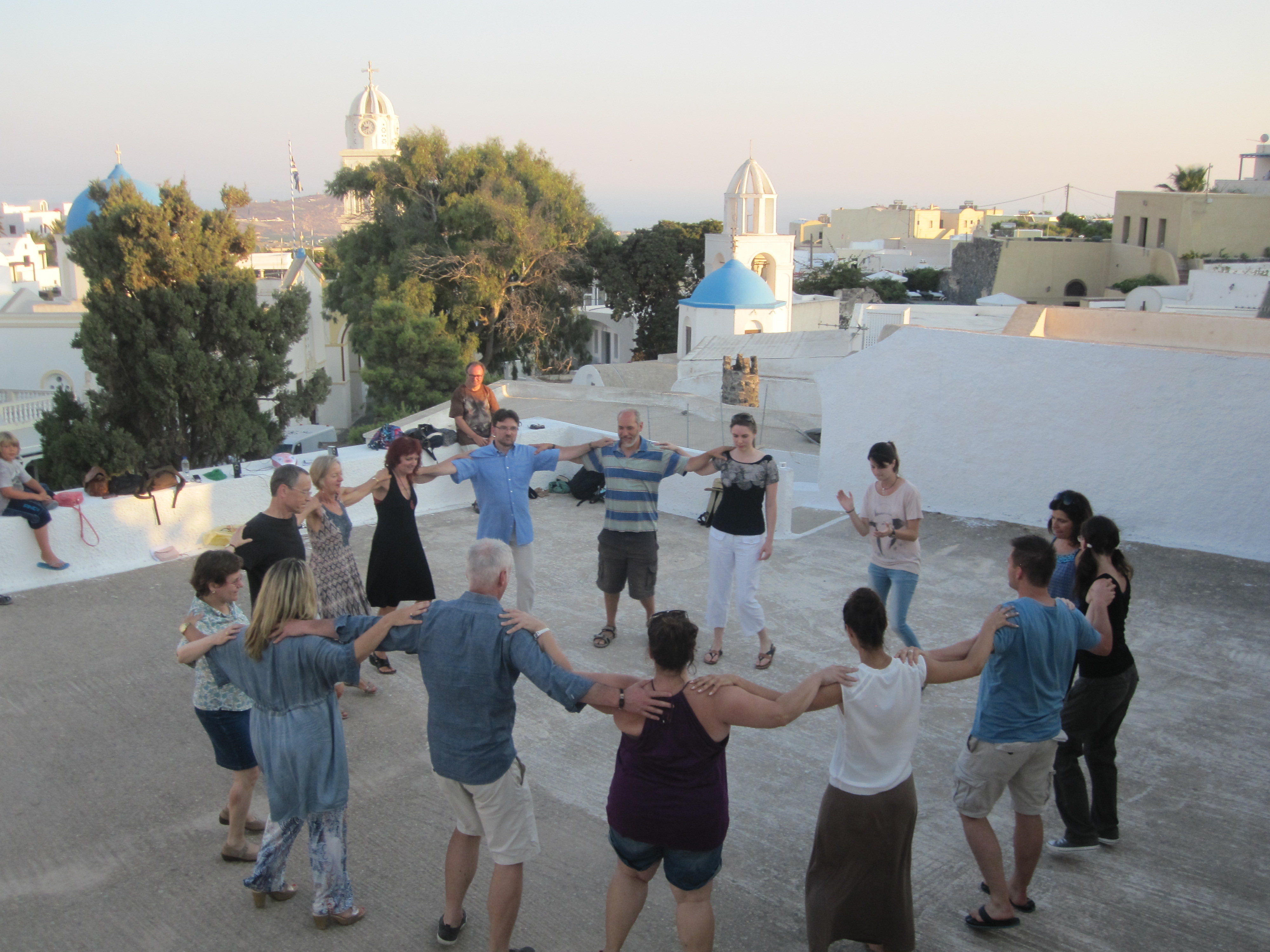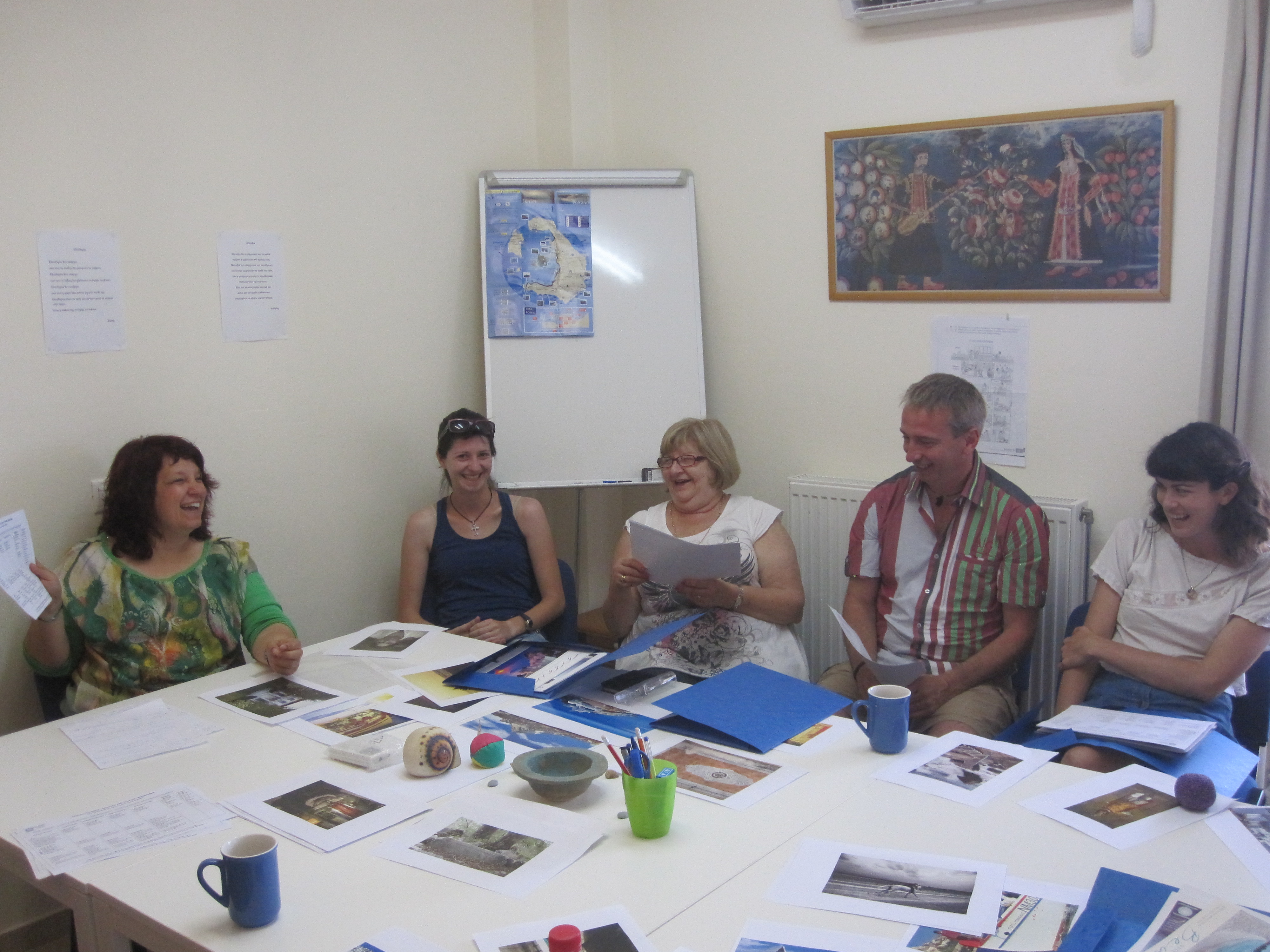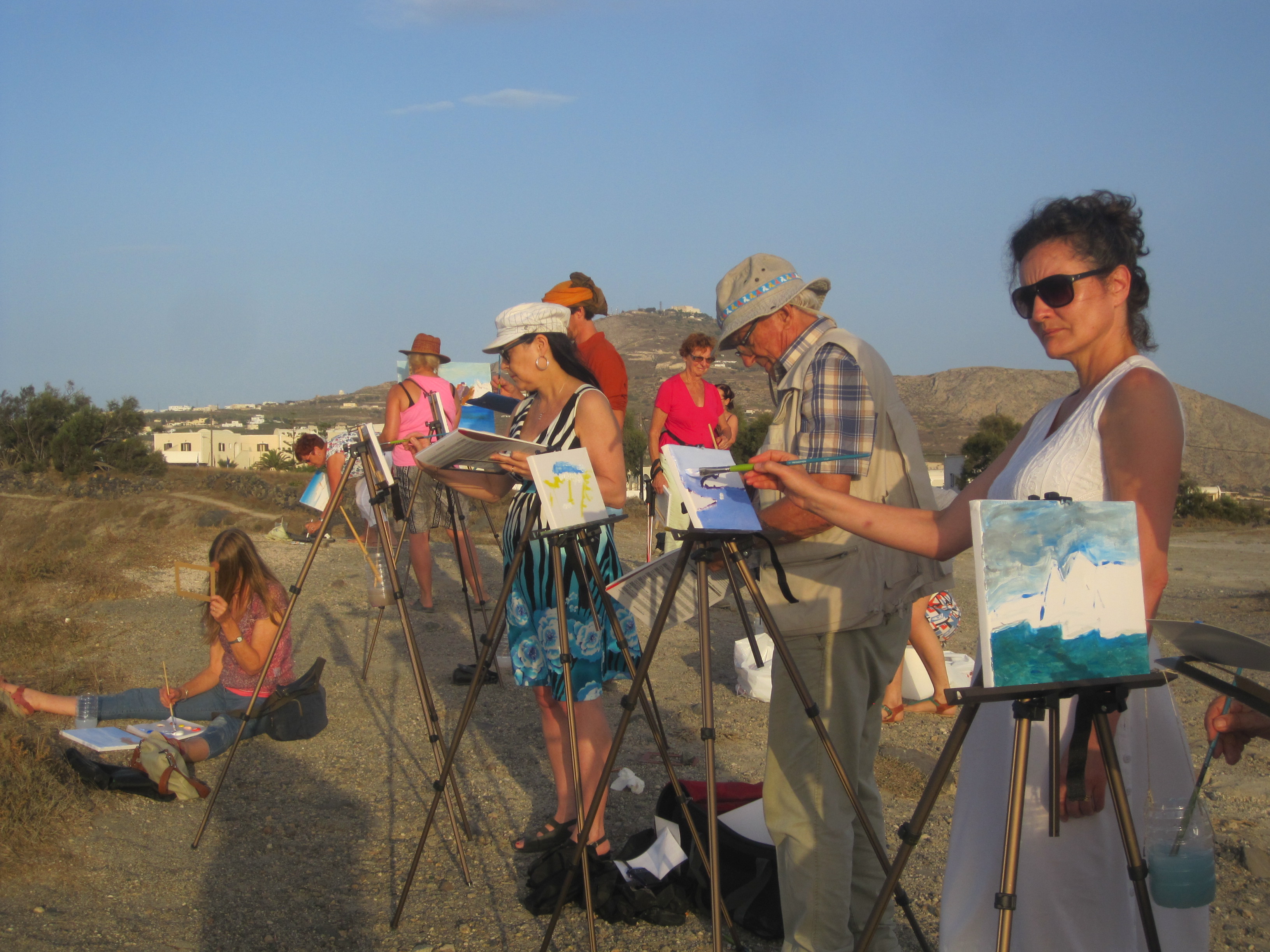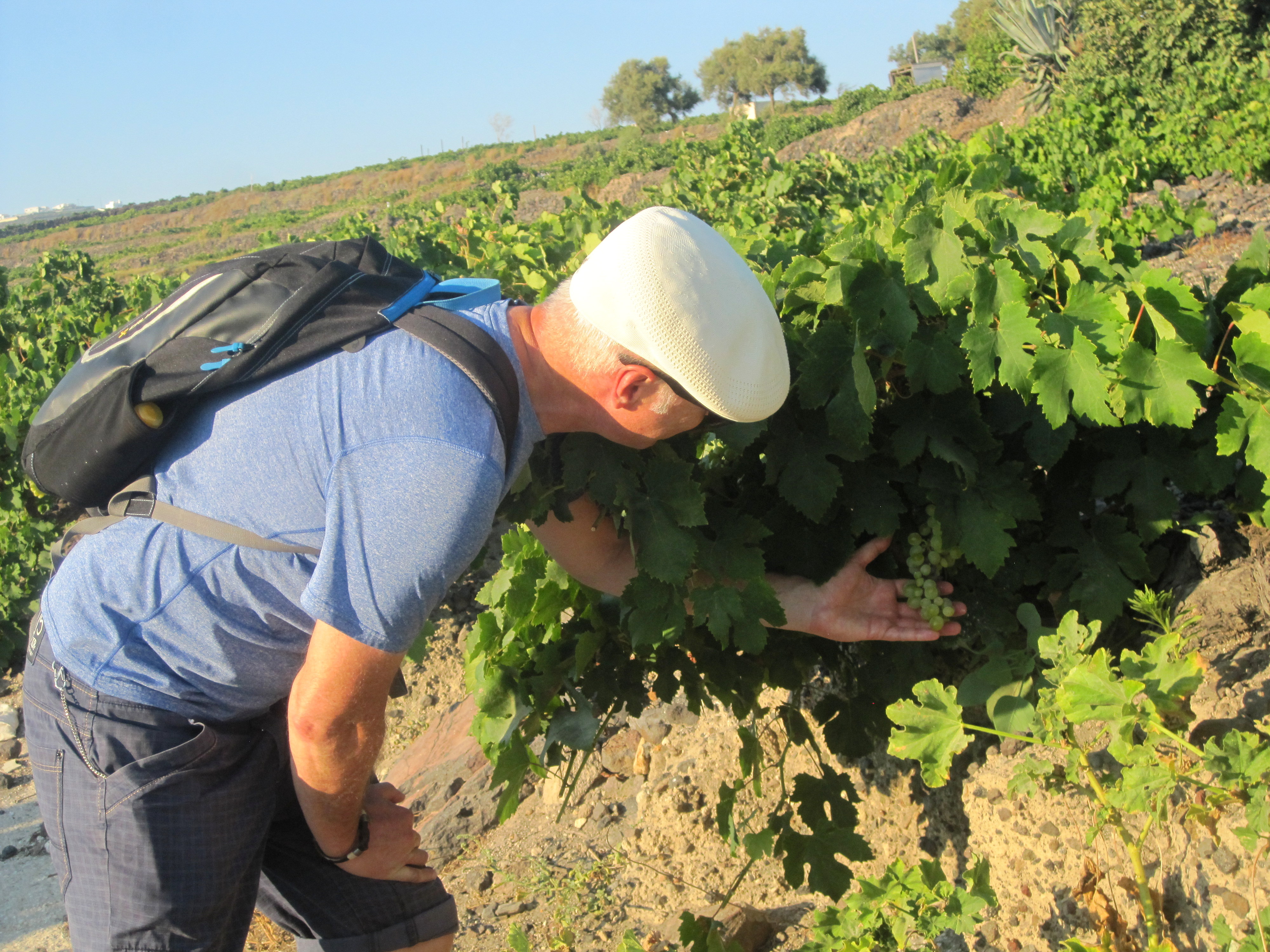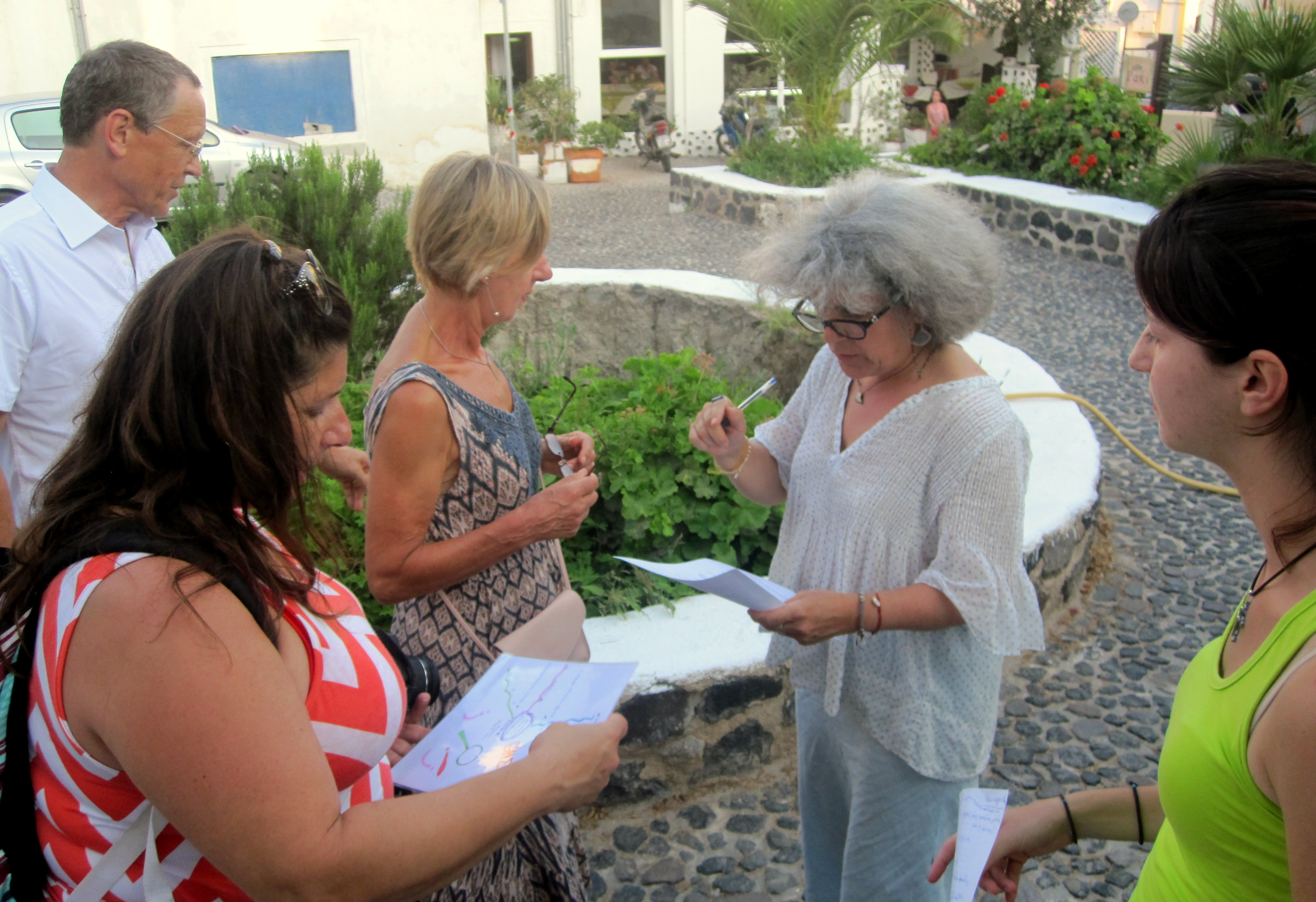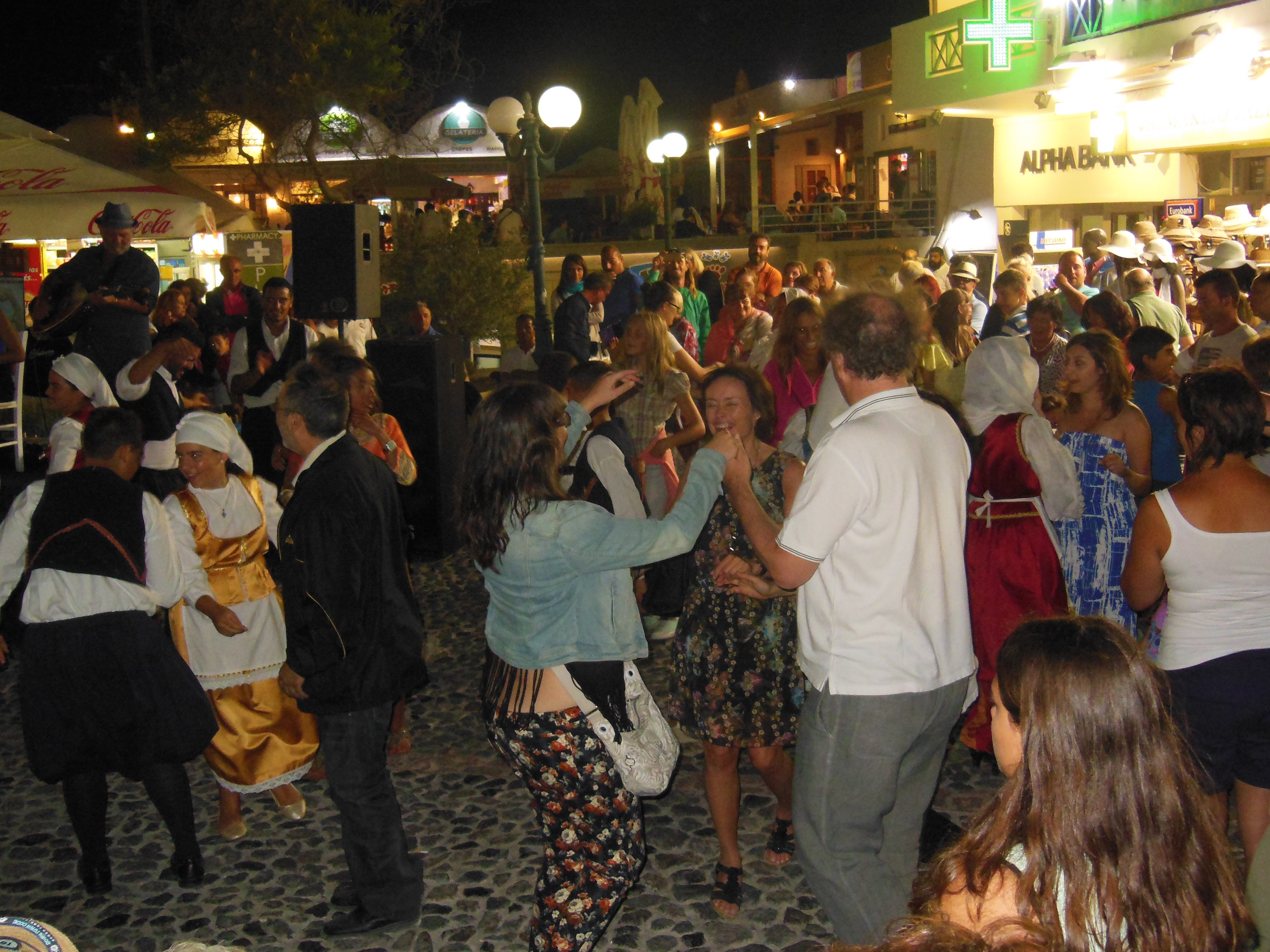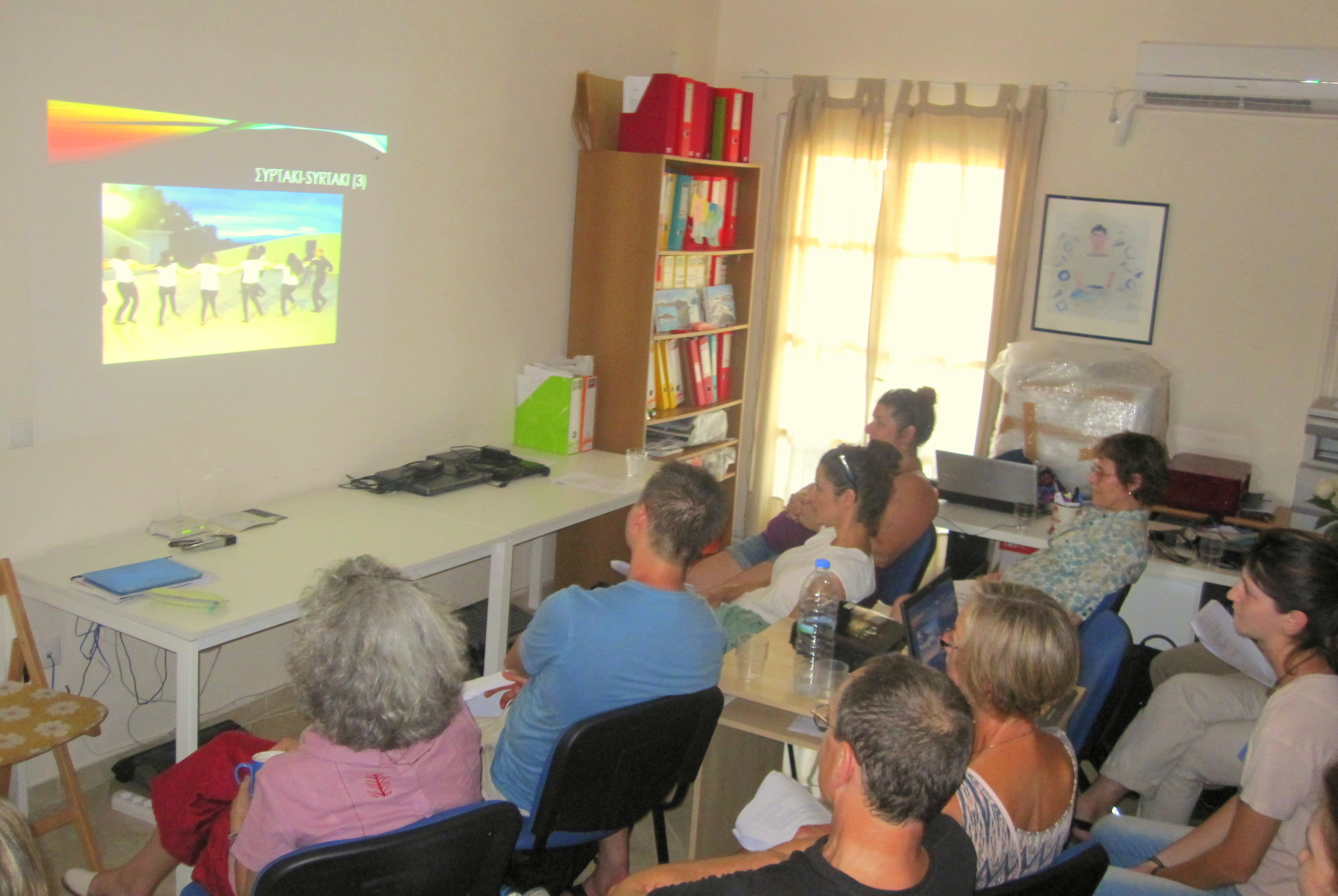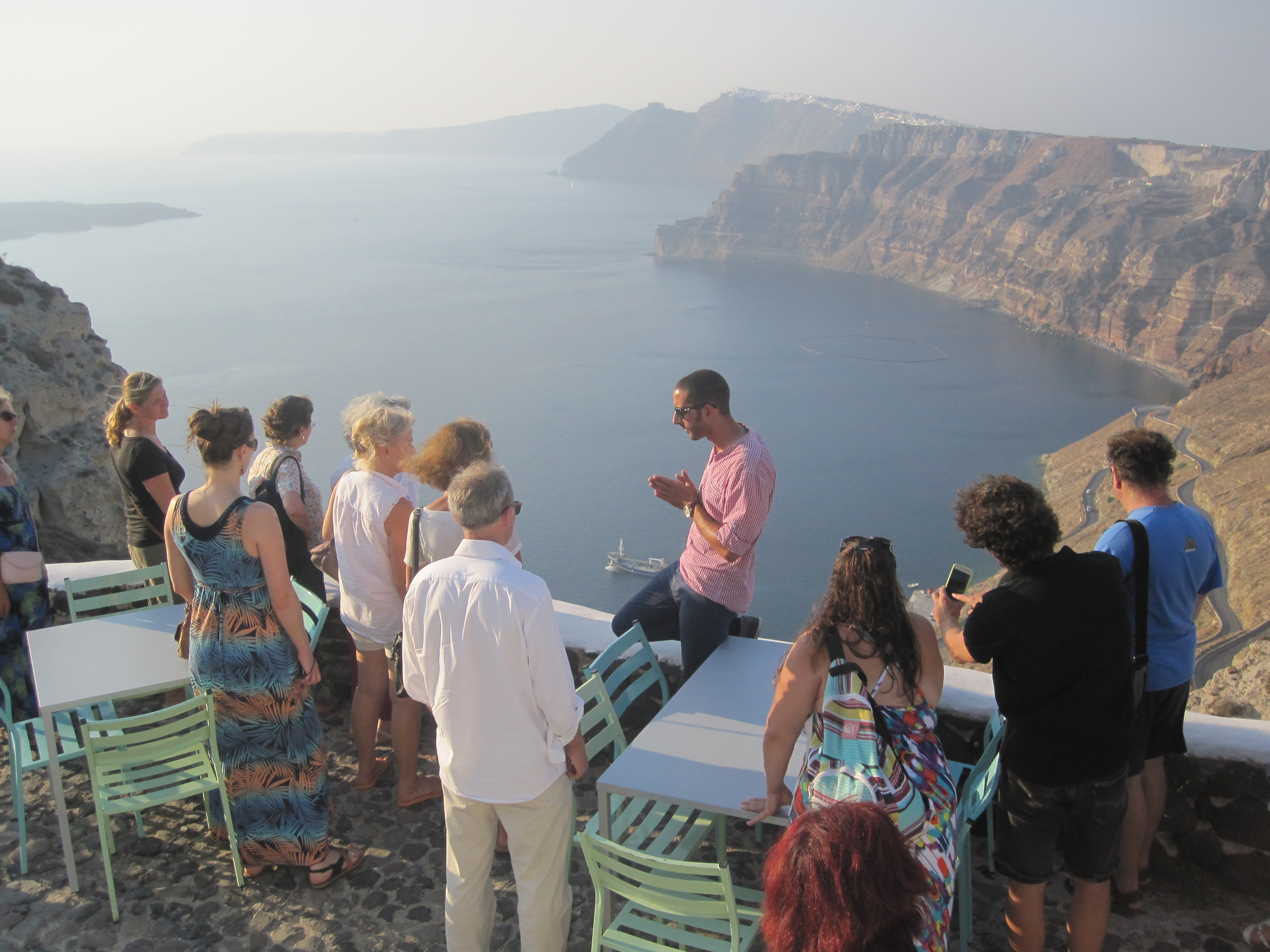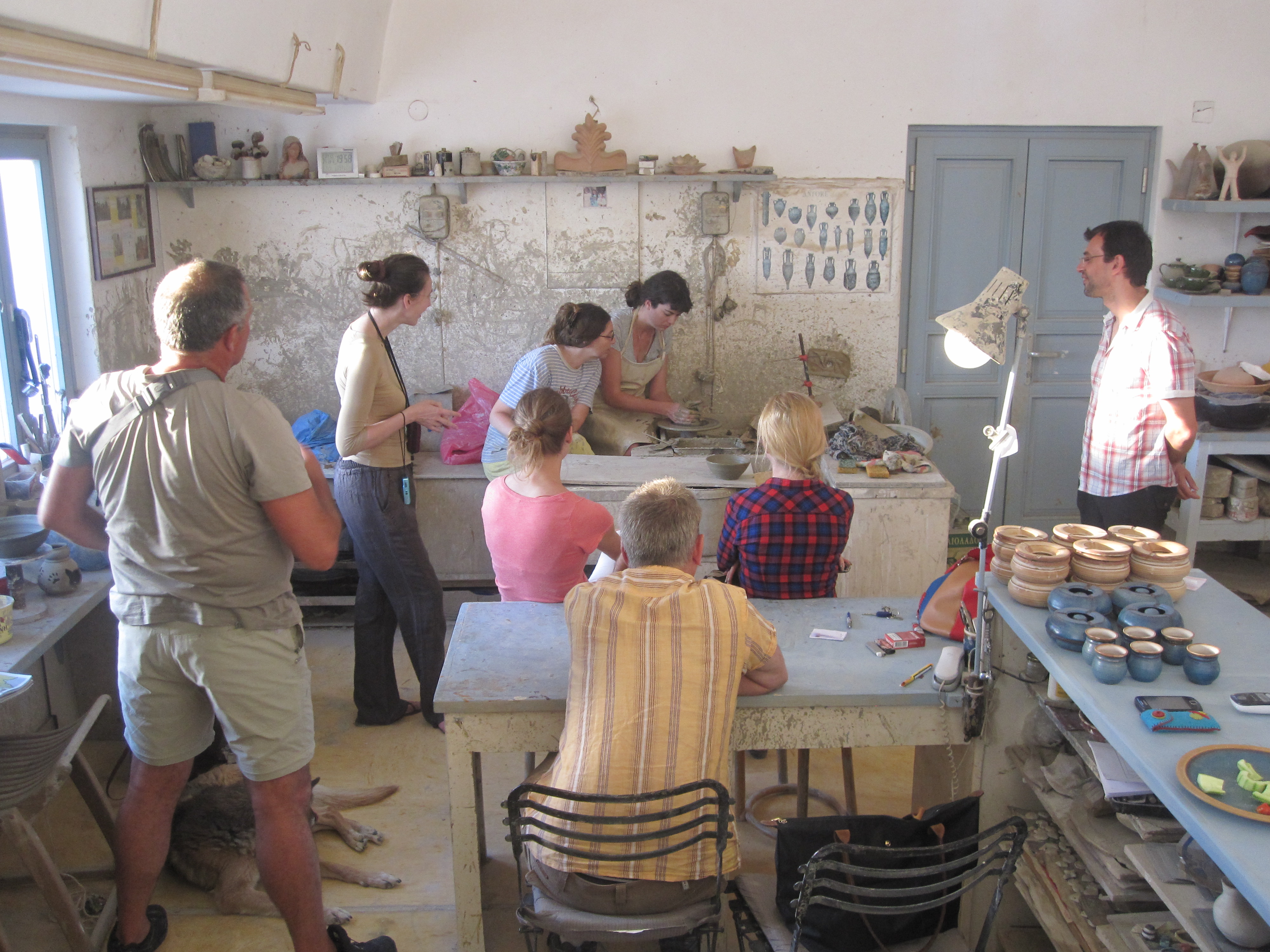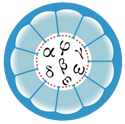Κεντρο Ελληνικου Πολιτισμου | Hellenic Culture Centre
International Greek Language and Culture School in Santorini
HELLENIC CULTURE CENTRE
www.hcc.edu.gr
After 21 years of teaching Greek as a foreign language, in Ikaria Island, Lesvos Island and Athens, we are now in a new place. Since 2014 the Hellenic Culture Centre has been organizing the International Greek Language and Culture School in Santorini, this beautiful island with its emotive and evocative atmosphere. Our school is based in Megalochori, a traditional village with bright Cycladic colours.
A vivid group of people coming from all over the world speak and express themselves in Greek, they sing, they dance and they participate in the cultural life of the island urged by a deep motive for knowledge, respect and love for the Greek language and culture. The spirit of Greek tradition and the restlessness of modern Greece will come to life with sounds and words expressing universal and timeless values as conceived by the Greek feeling.
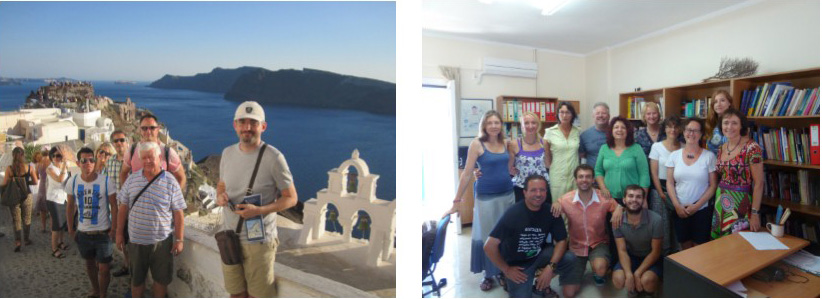
“Man plans and God laughs!” 😊
Due to COVID-19 crisis, the Greek Language and Culture International School in Santorini will only offer private courses together with all relevant cultural activities. Come with your friends and relatives and enjoy exclusive services! One to one Greek Language lessons will be offered throughout 2021 for as many hours as you wish. Create your own flexible programme for Language and Holidays!
Click here for the start dates, levels and fees.
WHAT WE OFFER
- Intensive 1-week Modern Greek Language Programmes* for non-native speakers (20+7 hours). The 1-week programme runs Monday to Friday from 9:00 to 13:30 or 11:30 to 16:30. The training fee incudes one 7-hour interactive outdoor workshop which takes place every Saturday. In Greek (All teachers speak at least two foreign languages, if needed).
- 2-hour Greek Language Crash Course. For visitors of Santorini who wish to have a first contact with the magic of Greek.
- Private, tailor-made Greek Language Courses. In Greek (All teachers speak at least two foreign languages, if needed). Click here for the fees for private lessons.
- Activities Menu. A tailor-made programme of cultural activities which offers an introduction to the rich local history and traditions of the Aegean. In Greek and English. Students of the Intensive Modern Greek Language Programmes can choose any activity at a reduced rate. Scheduled activities take place according to the number of persons interested. Click here for more information.
*The intensive Greek Language programmes can be extended upon request
LOCATION
Santorini doesn’t need any special references. It has been ranked as one of the ten most beautiful islands in the world, and its volcanic landscape takes your breath away.
Megalochori is located 7 km away from Fira, the capital of the island. It has kept its traditional colours and it is one of the few villages that have been declared “traditional settlements”. It is surrounded by vineyards and has many churches famous for their ornate bell towers, white Cycladic houses and narrow streets.
Megalochori is very closed to Pyrgos and Emporeio. All three villages are not very popular touristic sites, they are quiet and peaceful even in August and they offer many options for accommodation and food at lower prices.
You’ll find our school in the second entrance of Megalochori, right across the street from Geromanolis tavern.
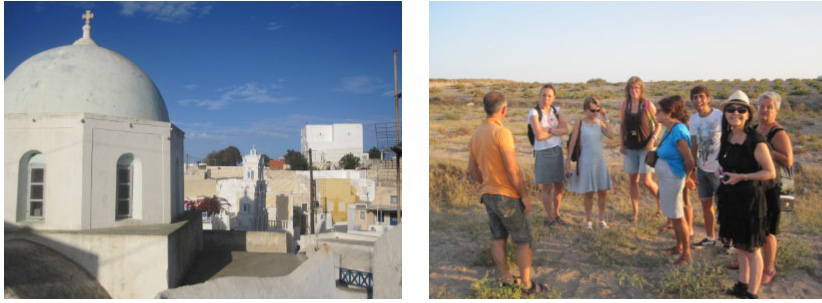
ACCOMMODATION
Students and guests stay in hotels and pensions in Megalochori at special reduced rates. Contact us for accommodation list and special prices for our students.
TRAVEL TO SANTORINI
The Hellenic Culture Centre is a private organization specialized in teaching Greek as a Second and as a Foreign Language. The promotion of the Greek Language and the Greek Culture worldwide, as well as the development of the linguistic and intercultural skills in every citizen in the framework of the multicultural environment, are its aims.
It started working in 1995 on Ikaria island, the Aegean Sea, where it organized with great success during ten years one of the first summer schools for Greek in Greece, with Greek courses, cultural activities and teacher training for teachers of Greek as a foreign language. It continued its actions in Athens, where it is now based, and in selected places in Greece and abroad (Lesvos Island, Aegean Sea- Brussels).
Teacher training in didactic Methodology is complemented by seminars in Intercultural Education, in Adult Education and Education for Peace.
The Centre's staff is experienced and specialized teachers (philologists, linguists, translators) as well as special associates (lawyers, economists, social anthropologists, sociologists, political scientists) who work in teaching and research fields. It cooperates with relevant organizations in Greece and abroad and participates in national, European and international projects.


